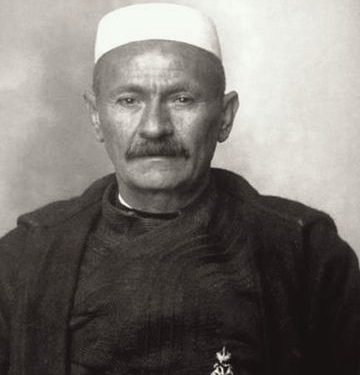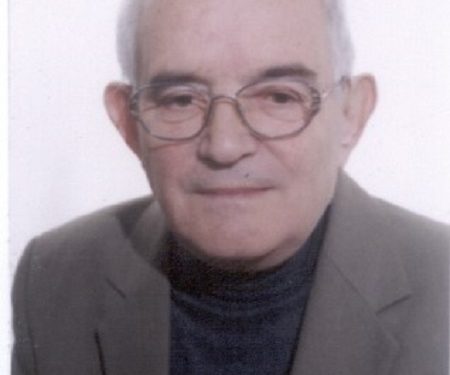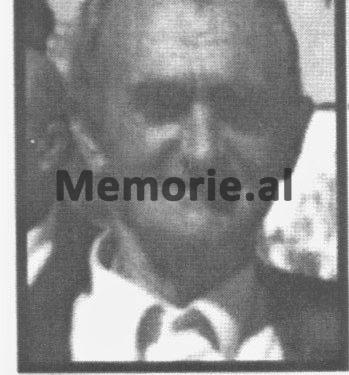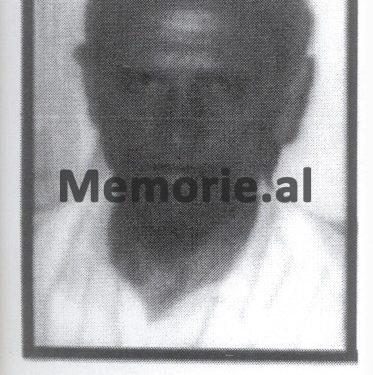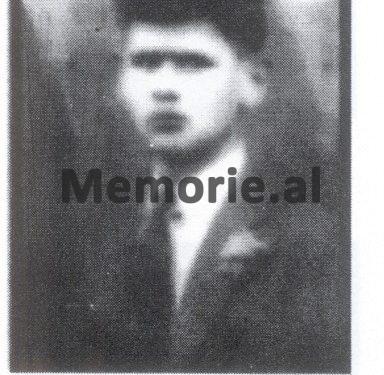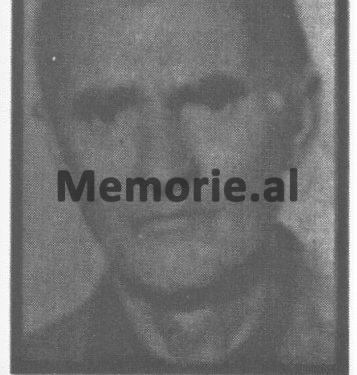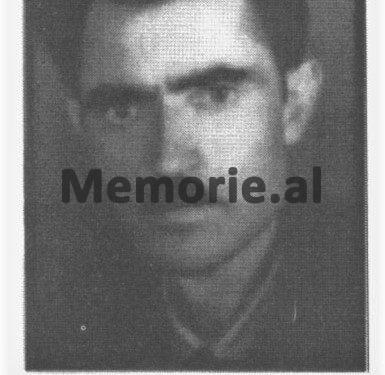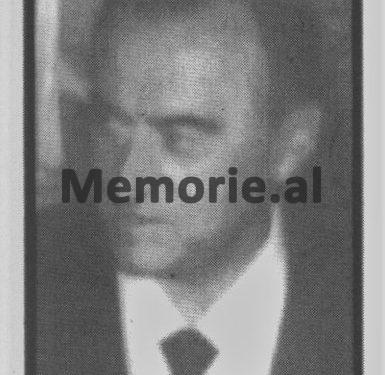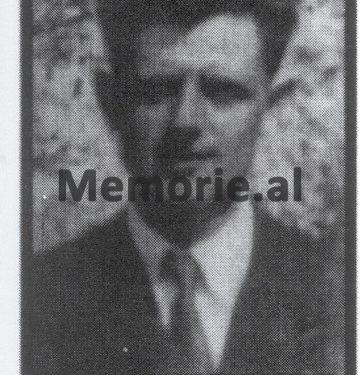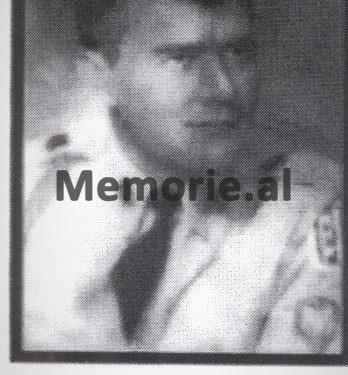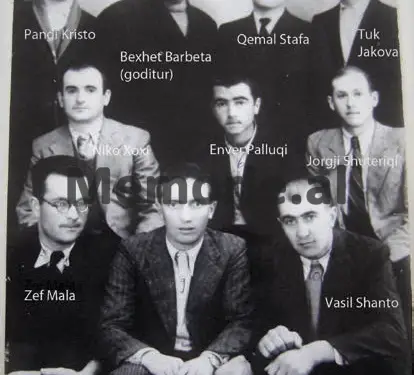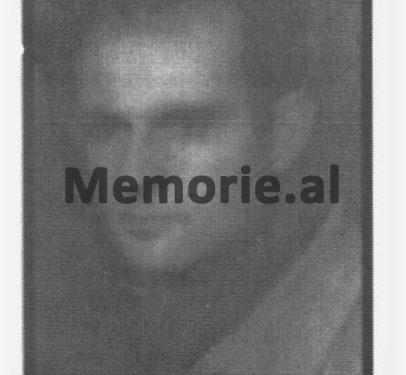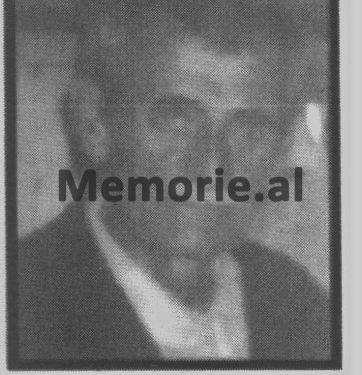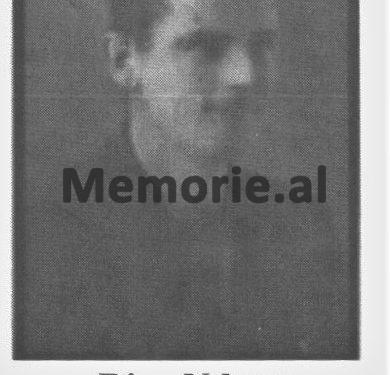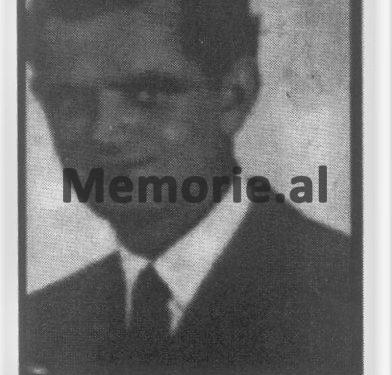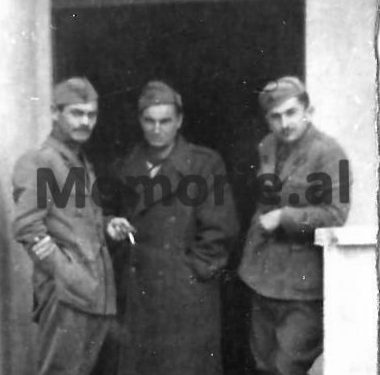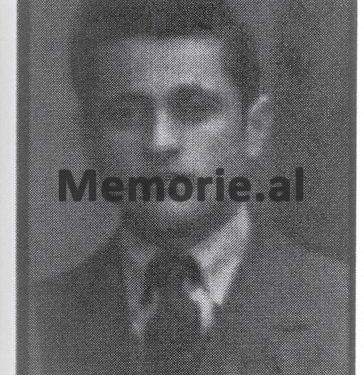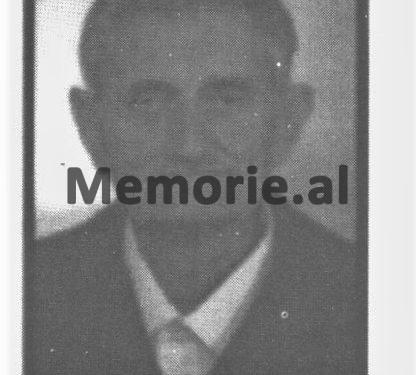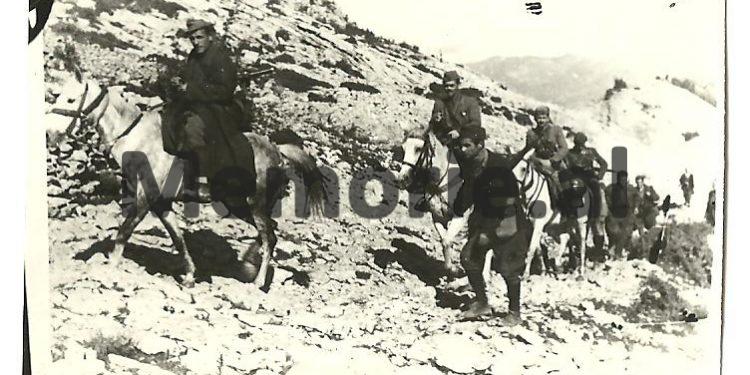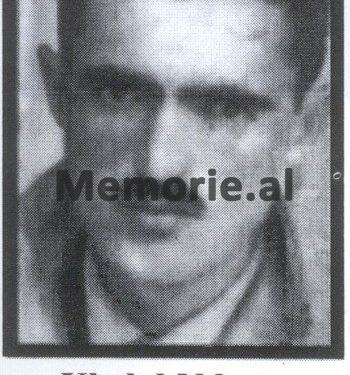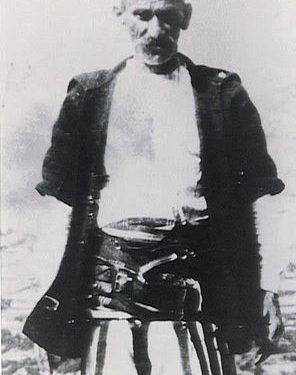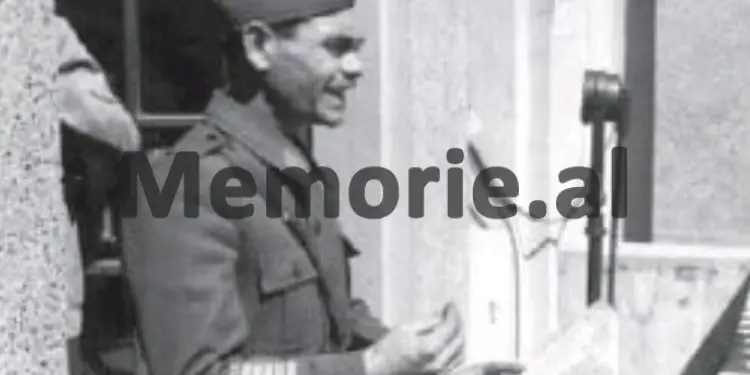Dashnor Kaloçi
Second part
Memorie.al publishes the unknown history of the large Ndreu family from the village of Slovo e Dibra, where the first of them, Cen Elezi, stood out as a popular leader of Dibra volunteers in the wars to protect the north-eastern borders of Albania from the attacks of the formations Serbo-Montenegrin and in 1924, as a close friend of Bajram Curri, lined up alongside the Fanoist forces in the “June Uprising” and was killed at the end of December of that year when Zogu returned to Albania. The rare testimony of his grandson, Hiqmet Ndreu, the son of Cen Elez, one of the most popular figures of the entire North of Albania, who took his father’s place at the head of the Ndreu tribe and during the period of the occupation of the country in the years 1939-1944, their house in the village of Slovo di Dibra became one of the main bases of the Anti-Fascist War where both nationalist and partisan forces were sheltered, since two of the sons of this family, Major General Dali Ndreu and Lieutenant Colonel Esat Ndreu, were in leadership roles as division and brigade commanders in the National Liberation Army led by Enver Hoxha and Spiro Moisiu, which caused that large house to be bombed by Italian aviation in 1943. The contradictions of the large Ndreu family with Enver’s communist regime Hoxha in the first years after the war, where Cen Elezi, even though he was the vice-president of the Democratic Front of Albania (Enver’s deputy), did not agree with his pro-Yugoslav policy and left there went to the mountains with his sons and nephews, which caused that family to be persecuted by the communist regime in power, where as a result 6 men from this family were shot, 20 others were imprisoned and served dozens of years in prison, 12 escaped from Albania and 55 families were interned and suffered in the internment camps of Vlora and Myzeqe until 1991
Continues from last issue
Cen Elez Tower in Slovakia, base of the Anti-Fascist Movement
During the entire period of the occupation of Albania from 1939 until the end of the War at the end of 1944, Cen Elezi and the entire Ndreu tribe were closely associated with the Anti-Fascist Movement and their tower in the village of Slovo became one of the bases main events of the War, where not only the Dibra parish gathered, but also other nationalist exponents from all over Albania. By the beginning of 1942, Ceni had collected and maintained nearly 200 armed nationalist men with whom he operated in the area of Slovakia. At that time, the Italians, knowing this fact, tried to engage those forces in the war against the other nationalist forces of Muharrem Bajraktar who were operating in the Kukës area.
This is best proven by an archival document in which the Deputy Prefect of Dibra notified the Italian authorities, saying that: “Cen Elezi is semi-illegal and refuses to appear before the Carabinieri, as he knows he will be arrested.” . From December 1942 to September 1943, Cen Elezi was one of the main nationalists of the assemblies that were held in Dibra and he personally participated in the meetings of the Parish of Dibra that took place in Reç, Peshkopi, Lumë, Slovo, etc. . Thus, in information from the Italian authorities of that time, among others, it was said: “In the house of Fiqëri Dines in Maqellare and in Banishte, several meetings were organized where the following participated: Cen Elezi, Myftar Kaloshi, Ali Maliqi and Aqif Lleshi”. In those meetings, Fiqëri Dine and Cen Elezi asked the entire parish of Dibra to exercise all their influence and until the end of the War, to stop all blood feuds.
In March 1943, Cen Elezi with the entire Dibra parish participated in the burial ceremony of Shaqir Dema, who was one of the most prominent men of that parish. Taking advantage of the opportunity and knowing that all the nationalists of the area would go to participate in his burial, the Italian authorities of the “Florence” Division based in Dibra e Madhe, sent numerous military forces to surround them and destroy them. In those fights where there were killed and wounded on both sides, Cen Elezi and his son-in-law were injured.
Italians bomb Cen Elez towers in Slovakia
Based on the information that the Italian authorities had about the stay and activity of Cen Elez, who had turned his house into one of the main bases of the Anti-Fascist Movement, the high military command based in Tirana ordered the Aviation Command to bomb the towers of his in Slovakia. After this order, the Italian Aviation bombed not only the towers of Cen Elez in Slovakia, but also those of Xhetan Elez and Beshir Sufa. These bombings, which caused great damage, were carried out because the Italian high authorities had detailed information that during those days in those towers, the main leaders of the partisan army of Enver Hoxha and those of the National Front led by Mit’hat Frashëri .
After these bombings, Cen Elezi with all the partisans who were there, were forced to leave and take the direction of Mount Korabi and along the way he stayed in several villages, where he made propaganda for the youth to organize in the Anti-Fascist War. In this regard, in an announcement by the Prime Minister of that time, who notified the Ministry of the Interior and the Italian command of the IX Army, it is stated, among other things: “Reka announces that at eight o’clock on the 24th of this month, Cen Elezi with his squad of 400 armed men, he went to the town of Shermenike, called the headman and ordered him to gather the youth and go out to the mountain to join them as the day approached”. One of the most important events in Dibra during the Anti-Fascist War was the Assembly of Lura, which was held at the end of August 1943, where all the main leaders of the forces fighting against the Italians, such as the Albanian partisans, the partisans, participated Macedonians, the National Front, as well as the nationalists, who were not grouped in any organization or political party.
Cen Elezi also participated in that assembly, an agreement of six points was signed by all participating parties, where the main point was the uncompromising fight against the occupying forces that were in Albania. During the period of the Nazi-fascist occupation, in addition to Cen and all his sons who engaged with all their strength in that war, at the head of the partisan forces, Cen’s brother Esat Ndreu and his relative Dali Ndreu also participated. Esat Ndreu with the rank of lieutenant colonel was appointed commander of the 18th Assault Brigade (partisan), while Dali Ndreu with the rank of major general, was Deputy Chief of General Staff and Commander of the First Division of the Partisan National Liberation Army who led by Spiro Moisiu and Enver Hoxha. In those high command functions, they remained until the end of the War.
How did Enver Hoxha massacre the nationalist family of Cen Elez?!
Regarding the tragic fate of the family of Elez Isuf Ndreu and his son Cen Elez, after the communists came to power in 1944, his grandson Hiqmet Ndreu said: “After the end of the war until March 1946, our family Ndreu in Slovo de Dibra is not affected by the communist regime of Enver Hoxha. This is thanks to the great contribution we made during the War and a kind of respect that was maintained for Major General Dali Ndreu and Lieutenant Colonel Esat Ndreu. The brutal and unprecedented persecution and genocide against our family began after March 1946, when our grandfather Cen Elezi (the son of the ‘Hero of the People’, Elez Isuf Ndreut) was declared an “enemy of the people”, as Cen and all our Ndreu tribe could not agree with the political line that was being followed by Enver Hoxha and the government headed by him, becoming vassals of Tito’s Yugoslavia, the centuries-old enemies of Albania, with whom we had fought for several decades and had been killed with them .
At that time, in order to escape the persecutions of the partisan units of the People’s Protection Division, who burned down our large three-story towers in Slovakia, Ceni, with his brothers and sons escaped to the mountains? At that time, some of the men of our family were killed in the mountains in an effort with the communist forces, while others escaped outside of Albania, while those who remained were arrested and ended up in the prisons and exiles of the communist regime of Enver Hoxha”.
Cen Elez Ndreu
After staying for some time in the mountains together with some of his sons and brothers, to escape the persecutions of the communist forces, Cen Elezi was forced and escaped from Albania crossing into Yugoslavia, where he was arrested by the UDB . Being one of the scions of the Ndreu family, who was known for the wars he had waged over the years against the Serbo-Montenegrin forces, Cen Elezi was kept isolated for some time in the Skopje Castle prison, where he died from torture in 1949.
Mersin Elez Ndreu
Mersini was born in 1887, in the village of Slovo, and received his first lessons in a school in the Turkish language, and then he was involved in the economic administration of the large Ndreu family. Mersini has participated in all the wars alongside his father Elez Isufi, where the most important one was the battle of Trojak against the Serbs in Peshkopi. At the end of 1943, he participated in the fight for the defense of the towers of Ndrevo, from the attacks of the Italian forces.
Xhetan Elez Ndreu
Xhetani was born in 1908 in the village of Slovo and was sent to study at Harry Fultz’s American Technical School in Tirana. Then he also attended a military school (Plotore). During the years of the Bird Monarchy, Xhetani served as a teacher at the “Dibra” Boarding School in the village of Kastriot in Peshkopia. In the 1930s, he left Education and served as Mayor of the Municipality in Petrelë, Delvinë, Qukës, etc. During the years of the fascist occupation, like all other members of the Ndreu family, Xhetani also fought with a weapon in hand against the Nazi fascist occupier. After the end of the War, he was appointed to several high positions in Peshkopi and Tirana. In 1948, he left Tirana and returned to Dibër, where he served as a teacher. In 1954, he was fired for political reasons, which forced him to engage in agriculture. In 1958, Xhetani was interned with his family in the village of Shtyllas in Fier, where he worked in the hardest jobs until he died in 1977.
Medi Elez Ndreu
Mediu was born in 1889 and was the third son of Elez Isufi. In the mid-20s, Mediu completed a course at the Officers’ Training School in Tirana, from where he graduated with the rank of lieutenant. After serving for some time as a lieutenant of the Bird Monarchy, he was dismissed by it and then immigrated to France. In 1941, he returned to Albania and during the war, he took an active part in organizing the anti-fascist resistance. In March 1946, he escaped to the mountains with Ceni and in 1949, escaped to Yugoslavia, where he was arrested by the UDB. Mediu was released from prison in 1951 and then emigrated to Italy, Australia and the USA. During the years that Mediu stayed as a political asylum outside Albania, he joined the “Democratic Union” party, making a great contribution as a publicist in the press of that party and that of the Albanian political exile in the West. Mediu died in New York in 1982.
Esat Elez Ndreu
Esat was born in 1910, during the years of the Monarchy he continued his studies at the American Technical School of Fultz in Tirana, and then interrupted it and entered a military school (Plotore) from where he graduated with the rank of aspirant. In 1935, he participated in the group of soldiers who supported the Fier Movement and was arrested as an antizogist. In 1938, he was released from prison and mobilized back into the army, following an amnesty granted at the time by King Zog. During the years of the occupation of Albania, he was engaged in the Anti-Fascist Movement and was one of the first soldiers to respond to the call to participate in the National Liberation Army commanded by Spiro Moisiu and Enver Hoxha. Being a highly prepared career soldier, the General Staff assigned him the task of commander of the XVIIIth Assault Brigade (partisan), as he had previously been the battalion commander and deputy commander of all the partisan forces of Dibra. He then became commander of the Second Division and deputy commander of the Third Corps. After the war, Esat was given the rank of lieutenant colonel and appointed commander of an artillery regiment in Tirana. After the escape of Cen Elez in 1947, he was expelled from the party and demobilized from the army, remaining as a simple clerk until 1956. After the shooting of Dali Ndreu, he made a protest to Enver Hoxha and after that he was family interned in Memaliaj of Tepelena, where he died in 1972.
Islam Hysen Ndreu
Islam, who was the first son of Cen Elez, was born in 1908 in the village of Slovo, he studied at Harry Fultz’s American Technical School in Tirana. By decree of King Zog, he was appointed mayor and served in that position in Kavajë, Shijak and Zerqan. In the first post-war years, he served in the Dibra District Council, but in March 1946, he was forced to escape to the mountains with all his other brothers and his father, Cen Elezi. After an amnesty granted by the communists, he surrendered and was sentenced to 12 years in prison. Then he was interned with his family in Berat and Lubonje in Vlora, where he died in 1988.
Gani Hysen Ndreu
Ganiu, who was the second son of Cen Elez, was born in 1909. After finishing elementary school in Slovakia, he studied at Harry Fultz’s American Technical School in Tirana. After finishing his studies, his father, Cen Elezi, assigned him to take care of the family economy. During the war years, Ganiu also got involved with the Anti-Fascist Movement with all his brothers. In March 1946, he escaped with his family and was killed during an attempt with the forces of the People’s Defense Division near his village of Slovo. Even today, it is not known where his remains rest.
Jelal Hysen Ndreu
Xelal, who was the fourth son of Cen Elez, was born in 1910 and after finishing primary school, he, like all his brothers, graduated from Harry Fultz’s American Technical School and after that he was appointed by King Zog as the mayor of Vlora , Ostren, (Gollobordë), and Ndroq. After fighting with a gun in hand in the ranks of Mehmet Shehu’s First Partisan Brigade (where he was wounded three times), after the end of the War he served in the Ministry of Defense with the rank of lieutenant. In 1946, he escaped to the mountains and after surrendering, he suffered 15 years in communist prisons. After being released from prison, he was interned in Lubonjë, Vlora, where he died in 1988. Xelal, since his youth, was passionate about literature and mastered six foreign languages, but during his arrest, the State Security seized all his manuscripts. After the 90s, the family published one of his books, entitled “There is no peace in Lisivadh”.
Xheladin Hysen Ndreu
Xheladin, who was the fifth son of Cen Elez, was born in 1915 and after studying in the “Normal” of Elbasan, he served as a teacher in the area of Peshkopia and later as an inspector of Education in the District of Dibra. During the war years, Xheladin, like other men of the Ndreu tribe, was involved in the Anti-Fascist Movement together with his father, Cenin. In 1946, he escaped to the mountains together with his brothers and other members of the large family and after surrendering, he suffered 10 years in prison. When he got out of prison, he was exiled in Lubonje in Vlora until 1990 and died in 1996.
Riza Hysen Ndreu
Rizai was born in 1918 and studied at the Tirana Madrasah. During the War years, he took an active part in the ranks of the Anti-Fascist Movement, like all the other men of the Ndreu family. Rizai enjoyed popularity in the Dibra area, but after escaping to the mountains with his family, he was caught and sentenced to 14 years in prison. After he was released from prison, he was interned in the village of Lubonjë in Vlora, where he died in 1982.
Isa Hysen Ndreu
Isai was born in 1919 and after being educated in Peshkopi, he then studied in Italy for Philosophy at the University of Florence. After the years of the Second World War, he became involved in the Anti-Communist Movement, being one of the central figures of the Albanian diaspora in the fight against the communist regime of Enver Hoxha. During the period of political emigration, Isai was involved in numerous publications of anti-communist literature in France and Italy, where, together with Lec Shllak, they were the publishers and editors of the magazine with anti-communist content, “Koha Jonë” that first appeared in Italy and then in France.
Other men of the Ndreu tribe
In addition to the brothers and sons of Cen Elez, during the years of the communist regime of Enver Hoxha, Selmani, Rexhepi, Irfani, Baftjari, Lazami, Tafili, Jonuzi and their youngest Bexhet Ndreu were killed, imprisoned and interned. After the blow suffered by the family of Cen Elez, in 1946, by direct order of Enver Hoxha, in 1955, Major General Dali Ndreu was shot with his wife Liri Gegë, who was pregnant, and for this unprecedented crime, at that time, the head of the Kremlin, Nikita Khrushchev, reacted publicly. The tragic story of the Ndreu tribe, (among the most famous not only in the district of Dibra, but also in the entire North of Albania) does not end here with these punishments and persecutions for the Ceni family, as many of his relatives will to suffer the same fate.
One of them was Qazim Ndreu, who escaped with Ceni to Yugoslavia, died in Brussels and left three children. Whereas Hiqmet Islam Ndreu, who after escaping from Albania in 1949, settled first in Italy and then in Australia, where he made a great contribution as an activist of the Albanian political exile in that distant continent and also as a publicist and journalist on Melbourne radio, where he hosted a program in the Albanian language. Hiqmeti returned to Albania after the 1990s and passed away in 2007 in Melbourne, leaving his remains to rest in Slovakia, Dibra, where they are still today in the large plot of the Ndreu tribe. /Memorie.al




